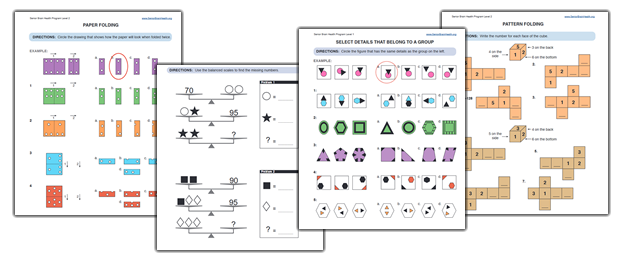As we journey through life, our cognitive abilities undergo a remarkable transformation. From the sharpness of youth to the wisdom of old age, our minds evolve in tandem with our experiences. However, with advancing age comes the inevitable reality of cognitive decline—a natural process that impacts various aspects of our mental functioning.
Memory Decline: A Common Concern
Cognitive decline encompasses a range of changes in cognitive abilities, including memory, attention, processing speed, and problem-solving skills. While some degree of cognitive decline is considered a normal part of aging, severe impairment can significantly affect daily functioning and quality of life.
One of the most well-known aspects of cognitive decline is memory loss. As we age, it's common to experience occasional memory lapses, such as forgetting names or misplacing items. However, significant memory impairment, such as forgetting important events or difficulty in learning new information, may indicate a more serious condition like dementia or Alzheimer's disease.
Attention and Processing Speed: Challenges in Focus
In addition to memory decline, older adults may also experience challenges in attention and concentration. It may become harder to focus on tasks for extended periods or to filter out distractions in a noisy environment. This can affect productivity and performance in various activities, from work to leisure pursuits.
Processing speed, or the rate at which we can perceive and respond to information, also tends to decline with age. Tasks that once seemed effortless may now require more time and effort to complete. This can be particularly frustrating when it comes to activities that demand quick thinking and rapid decision-making.
Problem-Solving: Navigating New Challenges
Furthermore, aging can impact our problem-solving abilities, making it harder to find solutions to complex problems or navigate unfamiliar situations. This decline in cognitive flexibility can affect our ability to adapt to new challenges and may lead to feelings of frustration or helplessness.
Promoting Brain Health: Taking Action
While cognitive decline is a natural part of the aging process, there are steps we can take to mitigate its effects and promote brain health as we age. Engaging in mentally stimulating activities, such as reading, puzzles, and lifelong learning, can help keep the mind sharp and agile. Additionally, maintaining a healthy lifestyle, including regular exercise, a balanced diet, and adequate sleep, can support overall brain function.
Critical Thinking Activities: A Solution for Cognitive Health
One particularly effective way to combat cognitive decline is through critical thinking activities. By challenging the mind with puzzles, problem-solving tasks, and thought-provoking discussions, individuals can stimulate various cognitive functions and promote brain health. At SeniorBrainHealth.org, we offer a curated selection of critical thinking activity books designed specifically to support cognitive health in our golden years.
Conclusion
In conclusion, understanding cognitive decline is the first step towards maintaining brain health as we age. By staying informed about the changes that occur in our minds and taking proactive steps to support cognitive function, we can navigate the challenges of aging with grace and resilience. Explore our selection of critical thinking activities at SeniorBrainHealth.org and start your journey towards a sharper, more vibrant mind today.




